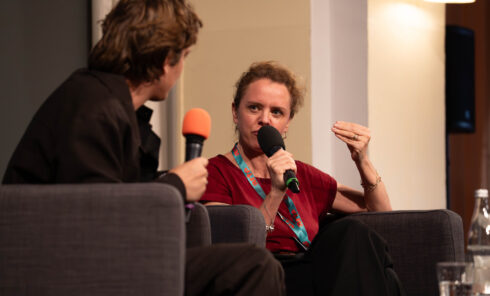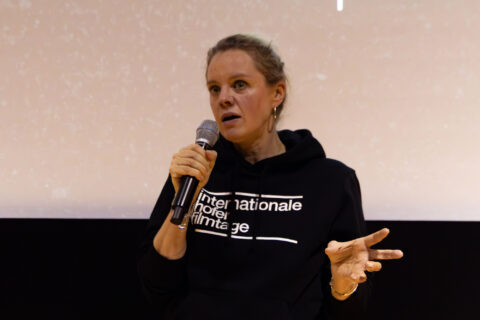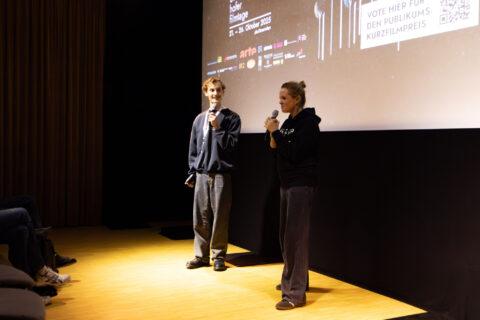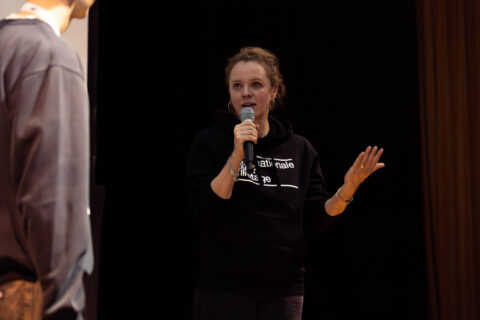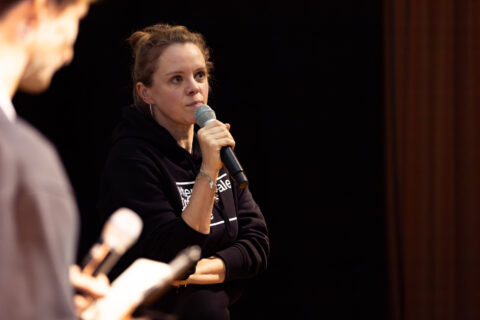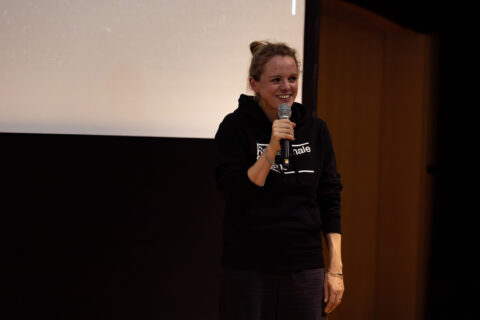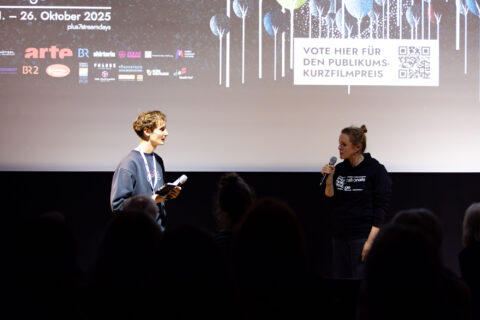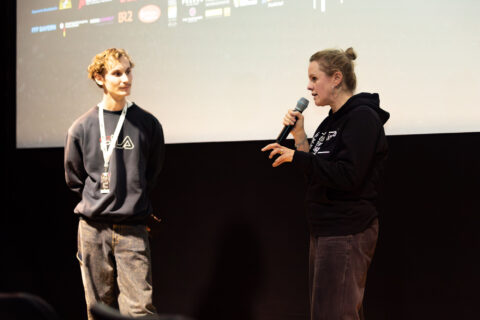Hannas Reise
To advance her career, Hanna needs proof that she has done some volunteer work. Social skills are in demand. It is something that has not played a major part in her life to date. So, she tries to cheat her way around it. But her mother, head of “Action Peace Services for Israel,” arranges an internship for her in a village for disabled people in Tel Aviv. Hanna sets off on the journey rather reluctantly.
In Israel, everyone meets Hanna’s arrogant manner with incomprehension, whether those in her shared apartment or “her” Holocaust survivor, Gertraud. Her assigned mentor, Itay, leaves her high and dry. At the same time, he launches a flirtatious offensive that Hanna cannot resist. Hanna begins to see the world through Itay’s eyes. But the differences in their backgrounds come between them—until they realize that being together is all that matters.
Cast
- Hanna
- Karoline Schuch
- Itay
- Doron Amit
- Carsten
- Max Mauff
- Maja
- Lore Richter
- Alex
- Trystan Pütter
- Gertraud
- Lia Koenig
- Uta
- Suzanne von Borsody
- Dietmar
- Martin Ontrop
- Personaler
- Andreas Borcherding
- Chefin
- Claudia-Sofie Jelinek
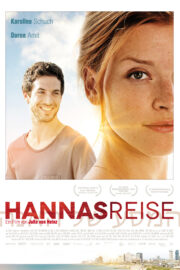
Hannas Reise
Julia von Heinz
- Production Country / Year
- 2013
- Language
- dt., engl. OF m. dt. UT
- Format
- DCP, Color, 99min
2.39:1, Discrete 5.1
Director & Crew
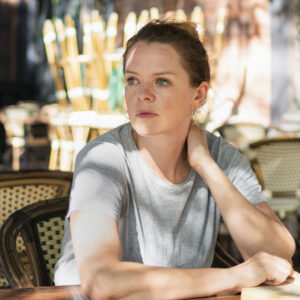
Julia von Heinz
Born in 1976 in Berlin. Studied and attained a Doctorate degree at the Film University Babelsberg Konrad Wolf. Active as a director, screenwriter, producer and professor.
Filmography
| 2001 | Doris | Kurzfilm | |
| 2003 | Lucie & Vera | Kurzfilm | 2003 |
| 2007 | Was am Ende zählt | Spielfilm | |
| 2008 | Alles was am Ende zählt | Spielfilm | |
| Standesgemäß | Dokumentarfilm | 2008 | |
| 2012 | Hanni und Nanni 2 | Spielfilm | |
| Rosakinder | Dokumentarfilm Co-Regie |
2012 | |
| 2013 | Hannas Reise | Spielfilm | 2013 |
| 2015 | Ich bin dann mal weg | Spielfilm | |
| 2017 | Katharina Luther | TV-Film | |
| 2018 | Für immer und dich | TV-Film | 2018 |
| 2020 | Und morgen die ganze Welt | Spielfilm | 2020 |
| 2021 | Eldorado Kadewe | TV-Serie | |
| Isolation – meine Väter | Episodenfilm Co-Regie |
2021 | |
| 2024 | Treasure | Spielfilm | |
| She gets it from me |
For as long as I can remember, my mother would travel to Israel every year, learning Hebrew and maintaining friendships and relationships in the country. Her father had a Jewish mother, and those roots gave her a close sense of connection to the country. I began traveling there as a teenager as well. So, I was delighted when I was asked to adapt Theresa Bäuerlein’s novel “Das war der gute Teil des Tages” (That Was the Good Part of the Day) for the screen, a German-Israeli love story set in the third generation after the Holocaust. We told this story with a lot of humor, something I was only familiar with from Israel because, at least back then, people in Germany weren’t brave enough to talk much about this challenging subject. It was also my first collaboration with Karoline Schuch, followed by others, of course. I will never forget our research and shooting in the German-speaking retirement homes in Israel, where Holocaust survivors were still welcoming German volunteers from the third generation every week to share their experiences with them personally. Today, very few of them are alive. Lia König, who plays Gertraud in our film, was born in Lodz in 1929 and still lives near Tel Aviv today. She is the focus of the film.
Since making this piece, I continue to be fascinated by the lasting impact of the Holocaust on subsequent generations.
- Make-up
- Silke Dotzauer
- Agnes Ellert
- Music Composer
- Matthias Petsche
- Producer
- Jörg Siepmann
- Harry Flöter
- Production Designer
- Eytan Levy
- Writer
- Julia von Heinz
- John Quester
- Editor
- Florian Miosge
- Casting Director
- Daniela Tolkien
- Esther Kling
- Costume Designer
- Hila Bargiel
- Director of Photography
- Daniela Knapp
